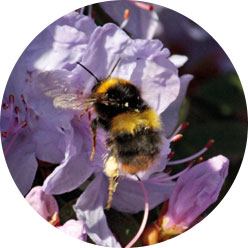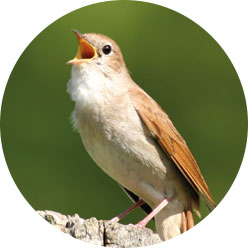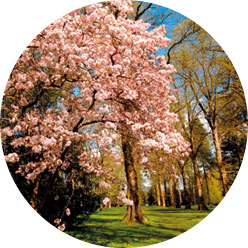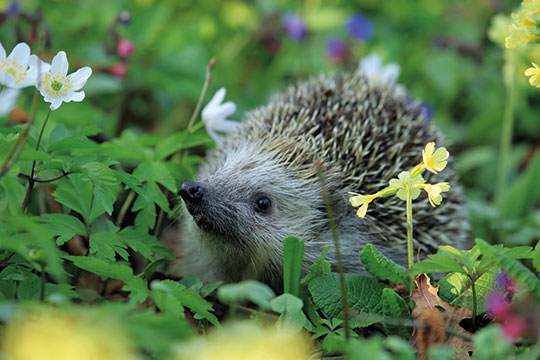Westonbirt wakes up
Spring gradually unfolds as migrating birds return to the longer days and plentiful food supplies. Snowdrops, primroses and cowslips decorate the forest floor and the bright yellow blooms of wild daffodils promise warmer days ahead.

March
The boughs of trees are not yet heavy with leaves and the sun rises higher to bathe the woodland flowers, encouraging bees and butterflies to search for nectar.
The warmer days also stir many hibernating animals. Hedgehogs are on the move again and snakes, frogs, toads and lizards are all leaving their winter homes.
The queen bumblebee emerges in early spring, having been fertilised at the end of the summer. She is the sole survivor from last year’s colony. Having found a suitable nest, the queen lays her eggs on a pollen loaf, collected from early spring flowers.

April
Spring begins in earnest with many tree buds turning to leaves, woodland animals foraging for food and starting families, and migrating birds adding to the morning songs.
There is an explosion of colour taking place in the arboretum as our collection of trees from temperate areas across the globe, including rhododendrons from the Himalayas and magnolias from China, begin to blossom. Also, keep an eye out for the beautiful pink and white blossoms of the Crab apple, Malus sylvestris, known as the ‘Tree of love’ by ancient Celts.
Flying in from Africa in April, the Nightingale is one of the best loved arrivals. The male’s beautiful song can be heard day and night as he announces his breeding territory.

May
May is a beautiful time to stroll through the arboretum. It's the peak of spring and the colours and sounds of nature are everywhere.
Deep blue carpets of Bluebells flood the glades and the Japanese maples show off their spectacular array of colours. Lookout for the striking purple pink flowers of purple orchids and foxgloves. You may pick up the sweet scent of lily of the valley. In the hedges the creamy white buds of hawthorn stand out against the bright green leaves. Damselflies and dragonflies have emerged from larvae or eggs under water, and show off their colours as they put on one of natures finest aerobatic displays.
Westonbirt’s cherry collection in Silk Wood is at its most stunning in spring. The pink blossom of Sargent’s cherry, Prunus sargentii, the large striking flowers of Prunus serrulata and the swooping blooms of Mt Fuji cherry, Prunus ‘Shirotae’, are just part of the Silk Wood display.
Have you spotted any spring wildlife at Westonbirt? Share your images on Instagram using #FriendsOfWestonbirt or email them to us at magazine@fowa.org.uk
